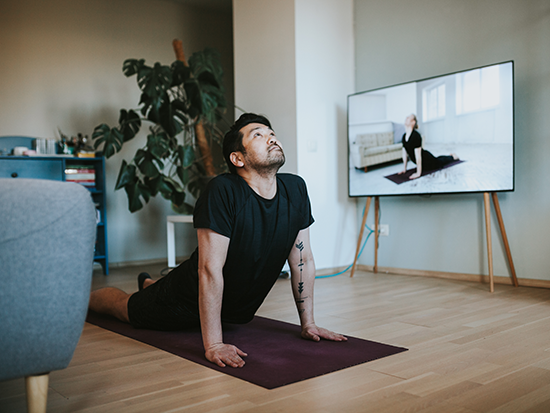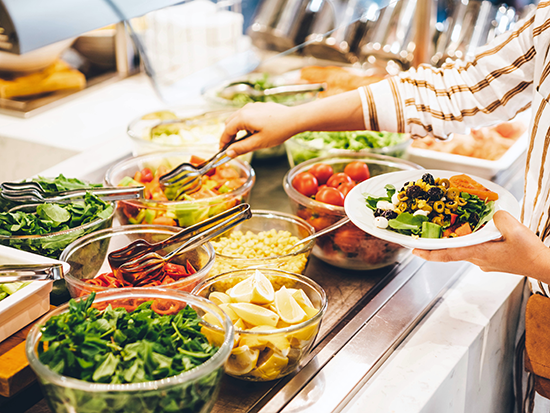 As the holidays approach, many begin to feel the inevitable stressors of the expected “cheerful” holiday season. Between hosting family, gift swaps with friends and the ongoing list of holiday parties, it can all become overwhelming if not properly managed.
As the holidays approach, many begin to feel the inevitable stressors of the expected “cheerful” holiday season. Between hosting family, gift swaps with friends and the ongoing list of holiday parties, it can all become overwhelming if not properly managed.
Experts at the University of Alabama at Birmingham offer advice on how to manage physical and mental health while enjoying the festive season.
Make time for exercise
Finding the time to exercise can be tricky during this time of year — especially if one is traveling. When away from home without access to a local gym, find a way to get outside.
“If you are out of town, search for local hiking trails or parks with access to fitness equipment; it can be a great way to get some exercise while also sightseeing,” said Calvin Spellmon Jr., M.D., assistant professor in the UAB Department of Family and Community Medicine. “If you’re around children, offer to take them to the park, and work on your push-ups and pull-ups on the playground.”
Spending time outside could also help reduce some of the stress that can come with the holidays, even if it is just relaxing. A UAB study suggests that spending 20 minutes in an urban park will make a person happier regardless of whether they are engaged in exercise during the visit.
If weather prevents enjoyment of the outdoors, Spellmon suggests turning to the internet to find workouts.
“You can find a large variety of free flexibility, yoga and meditation videos online,” Spellmon said. “Or, if that is not really your style of workout, hit up a circuit-style, bodyweight workout that focuses on higher reps and shorter breaks to keep your heart rate up.”
Spellmon recommends including a warmup to get the body ready before beginning and a cool-down to help the body ease back to resting.
 Incorporate healthy eating into holiday parties
Incorporate healthy eating into holiday parties
As the holiday season gets into full swing, many people will be hitting the holiday party circuit. Lavish get-togethers with delicious treats by the sleigh-full will abound, but that could cause one’s waistline to bulge.
UAB registered dietitian Tara Kelly says there are five main things one can do to become a healthy holiday party pro:
- Get a bird’s-eye view: Look around to see what the options for food are, then start filling a plate with healthier options such as vegetables, fruits, lean proteins and whole grains first.
- Avoid loitering at the appetizer table: Make a small plate, then move away to prevent overconsuming food.
- Fill half your plate with vegetables: Vegetables are packed with nutrients such as fiber, which helps people feel the sensation of fullness sooner and for longer periods of time.
- Bring your own dish: Not sure what the holiday party spread will offer? Why not bring a healthy dish so there is at least one option that can fill half a plate.
- Feast on good company: Holiday parties may seem as though they are all about the food, but this time of year is meant to be a time to gather and connect with others. Focus the majority of the time at holiday gatherings engaging in conversation with loved ones and those you do not get to interact with often instead of the food table.
“If you have a hard time with control when it comes to treats at holiday parties, do your best to maintain your daily healthy eating habits outside of the parties,” Kelly said. “Maintaining balance during this season as a whole will help you to enjoy the events and treats of the season, but not feel as though you’re sacrificing your overall health in doing so.”
Help your mental health by minimizing stressors
“Stress in and of itself is not a bad thing,” said Angela Stowe, Ph.D., director of UAB’s Student Counseling Services. “It often motivates us and is an indicator of something that is usually important to us. When stress starts to negatively impact your activities, then it’s probably time to step back and reflect on what’s going on and consider making adjustments.”
Stowe says following these best practices can help eliminate additional stressors:
- Plan ahead when budgeting: Financial overextension is one of the primary factors of stress over the holidays. Instead of conjuring feelings of guilt for not purchasing extravagant gifts, think outside the box for ways to provide and help others that are not necessarily an out-of-pocket expense.
- Remember you have the authority to say no: Being tasked with a long holiday to-do list can apply unwanted pressure. If you cannot add any more to your plate, remember you can always say no. It might be uncomfortable at first, but your space and well-being are more important.
- Acknowledge your feelings in dealing with grief:Loss is difficult during the holidays. Acknowledge your feelings by seeking counseling or reaching out to trusted loved ones for emotional support. According to Stowe, honoring your grief and the loss of loved ones is painful and healing at the same time.
- Accept the situations you cannot control: Avoid holiday disappointment by being realistic in knowing that you cannot worry about the things you cannot change. Be more understanding by not placing high expectations on yourself and those around you.